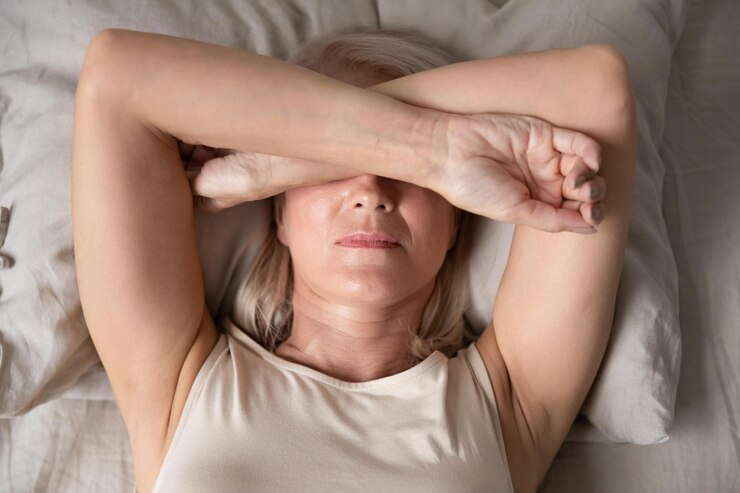Menopause is a natural phase of a woman’s life that marks the end of her reproductive years. While it is a normal and inevitable transition, menopause can bring about various physical and hormonal changes that can significantly impact a woman’s sleep quality. In South Africa, where a large number of women experience menopause, understanding the effects of menopause on sleep and adopting strategies to promote better sleep becomes essential. In this article, we will explore the impact of menopause on sleep quality and discuss ways to manage sleep disturbances during this phase.
- Hormonal Changes: During menopause, there is a significant decline in the production of estrogen and progesterone, which can disrupt the sleep-wake cycle. Estrogen plays a role in regulating body temperature, and its decline can lead to hot flashes and night sweats, which can disrupt sleep. Progesterone, known for its calming and sleep-promoting effects, also decreases, further affecting sleep quality.
- Hot Flashes and Night Sweats: Hot flashes and night sweats are common symptoms experienced by women going through menopause. These sudden surges of heat can cause intense sweating and discomfort, leading to sleep disturbances. Night sweats can result in soaked beddings, making it difficult to fall back asleep and maintain a comfortable sleep environment.
- Insomnia and Sleep Disruptions: Menopause can also contribute to insomnia symptoms. Women may experience difficulty falling asleep, frequent awakenings during the night, or waking up too early in the morning. These sleep disruptions can lead to daytime fatigue, mood disturbances, and reduced overall sleep quality.
- Mood Changes and Anxiety: Menopause can bring about mood changes and increased feelings of anxiety or irritability. These emotional symptoms can also impact sleep quality, making it harder to relax and fall asleep peacefully.
- Osteoporosis and Sleep Positioning: As women age, the risk of osteoporosis increases. Osteoporosis can cause discomfort and pain, making it challenging to find a comfortable sleep position. This discomfort can contribute to sleep disturbances and fragmented sleep.
Strategies for Managing Sleep Disturbances during Menopause:
- Maintain a Cool Sleep Environment: Keep your bedroom cool and well-ventilated to alleviate the discomfort of hot flashes and night sweats. Use breathable bedding, such as moisture-wicking sheets and lightweight blankets. Consider using a fan or air conditioning to help regulate the temperature in your sleep environment.
- Practice Relaxation Techniques: Incorporate relaxation techniques into your bedtime routine to promote better sleep. Deep breathing exercises, meditation, and gentle stretching can help reduce anxiety, relax the body, and prepare the mind for sleep.
- Manage Stress: Stress can exacerbate menopausal symptoms and disrupt sleep. Engage in stress-reducing activities such as yoga, tai chi, or regular exercise. Prioritize self-care and find activities that bring you joy and relaxation.
- Seek Medical Advice: If menopausal symptoms significantly impact your sleep quality and overall well-being, consult a healthcare professional. They can provide guidance and discuss potential treatment options, such as hormone replacement therapy or other medications, to alleviate symptoms and improve sleep.
- Practice Good Sleep Hygiene: Maintain a consistent sleep schedule, establish a relaxing bedtime routine, and create a sleep-friendly environment. Avoid caffeine and alcohol close to bedtime, limit screen time before bed, and ensure your bedroom is dark, quiet, and comfortable.
- Consider Natural Remedies: Some women find relief from menopausal symptoms and improved sleep quality through the use of natural remedies. Herbal supplements like black cohosh, evening primrose oil, or valerian root may help alleviate symptoms, but it’s important to consult with a healthcare professional before using any supplements.
Menopause is a transformative phase that can impact various aspects of a woman’s life, including sleep quality. By implementing strategies to manage sleep disturbances and seeking appropriate support, South African women can navigate through menopause with improved sleep and overall well-being. Remember, each woman’s experience is unique, and it’s important to find approaches that work best for your individual needs and preferences.










